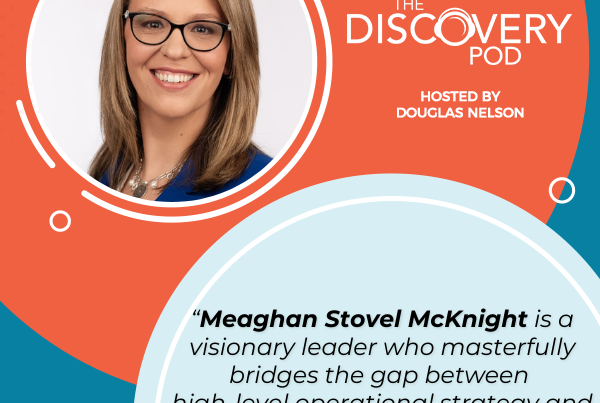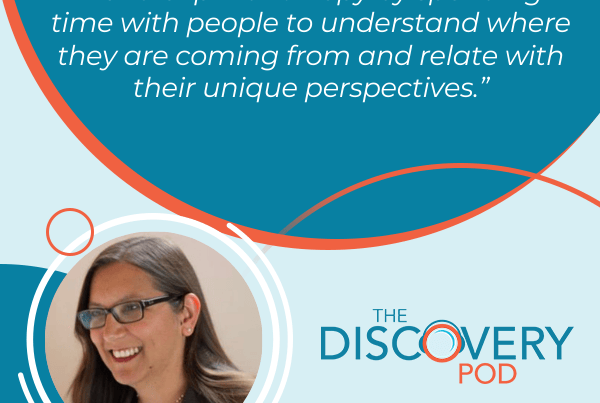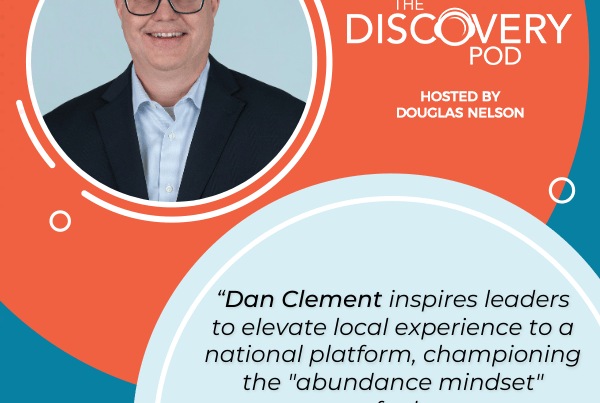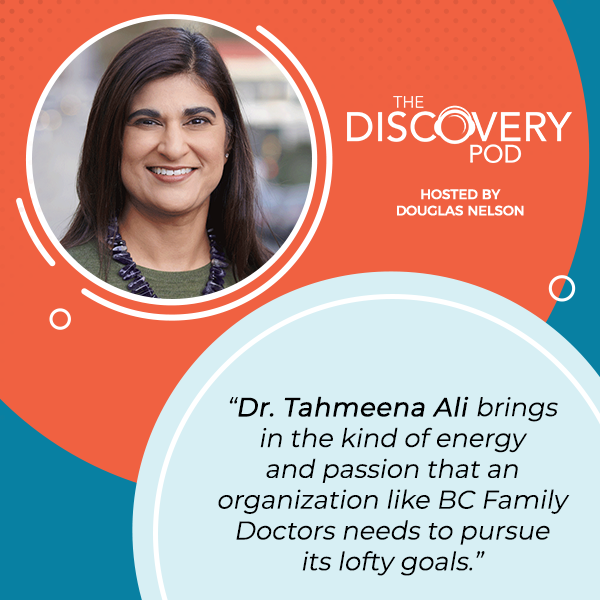
Joining Christoph is the president of the board of directors of BC Family Doctors, the advocates for the economic and professional well-being of all family doctors in British Columbia. They are your specialists in primary care, where they build a future for family physicians to thrive. Dr. Tahmeena Ali takes us into the depths of BC Family Doctors and the beauty of their organization in the community. She also navigates into the changes in the organizational model in the leadership structure. Recovering from the chaos of COVID, Dr. Tahmeena also takes us into the successes of BC Family Doctors. Let’s join Dr. Tahmeena today in helping physicians thrive.
—
Listen to the podcast here
BC Family Doctors With Dr. Tahmeena Ali, President
I have the pleasure of speaking with Tahmeena Ali, who is the President of the Board of Directors of BC Family Doctors. We’re here to talk about BC Family Doctor’s executive director search. Welcome, Tahmeena.
I’m excited to be here with you.
Thank you. I’m excited to be chatting with you as well and looking forward to learning a lot more about BC Family Doctors and the executive director search. Let’s start with the organization itself. Tell me about BC Family Doctors. For someone who isn’t familiar with it, can you tell me a bit more about it?
BC Family Doctors, previously known as a section of general practitioners, has been around for over three decades. We’re under the hospices of Doctors of BC, which is the big province-wide organization that all doctors belong to. We are the advocates for the economic and professional well-being of all family doctors in British Columbia. We are the economic and political voice for family doctors. That allows us to make sure that family doctors thrive because we need physicians who are thriving in order to take care of patients to keep them at their best and provide them with the optimal healthcare they deserve.
Tell me a bit more about your membership because I understand you’re membership-driven. You are a family doctor. Tell me a bit about who makes up the Family Doctor’s family if you will.
BC Family Doctors is a voluntary organization. Any family physician who chooses to can become a dues-paying member. However, we represent all family doctors. Whether you’re a dues-paying member or not, when we talk to other organizations, whether that’s the Ministry of Health, Doctors of BC, or the College of Physicians and Surgeons of British Columbia, we are speaking on behalf of everyone. How we can fund that work to do that advocacy and move things forward is the membership dues we’re paid. All our operations, including staff, wages, etc. come from membership dues. Membership is important.
Tell me a bit more about the importance of family medicine and family practitioners. One of the people I was speaking about with your organization said that longitudinal family practice is the bedrock of a sustainable healthcare system. I want to talk a little bit about that because it’s important for people to understand the importance of family practitioners and family doctors in our healthcare system. You’ve alluded to a few other organizations. Put that in context a bit more about the important role that family doctors play.
It’s hard to say that without being biased because I’m a family physician. I’ve been a family doctor for 21 years. In every healthcare organization or system across the world, the commonality between all of them when they’re high functioning is having a robust, complete, and well-functioning primary care system because that’s the first interface that patients have.
Every high-functioning healthcare system has a robust, complete, well-functioning primary care system. Share on XI also like to think that when people think of their doctor, for most people, that image is not of their endocrinologist, obstetrician, or orthopedic surgeon but of their family physician. It’s that person that they go to with a cough and cold, the person they bring their child to for a well-child check, or someone they go to when they’re feeling upset or had a loss in the family and they need to debrief. We’re the go-to for everything. It’s what I love about my job.
One of the beauties of community longitudinal family practices and long-term relationships is that we’re a relationship-driven profession. We get to know our patients over time in decades. We take care of generations of family members. It gives me great pride to think that I have quite a few, at least three generational pods, in my practice. As I like to think, I chose family medicine because I want to know how the story ends. I want to see what happens after I give that antibiotic, watch that baby grow up, or see the baby after the pregnancy. That’s one of the magics of family medicine.
I didn’t mean to put you on the spot there in terms of your biases, but the people I’m speaking to about the organization, board members, leaders like yourself, and people who are in the profession speak with such passion about the importance of family medicine and this piece. I wanted to get that in the minutes as it were. Talk a bit more about yourself. You’ve talked about being a family doctor for 21 years. What brought you to BC Family Doctors as an organization? What was the draw? How did you get involved and why?
I started as a member. When I moved to British Columbia eleven years ago, I paid my dues to BC Family Doctors to support the work, not knowing exactly where they fit in the landscape because it is a complicated landscape with a lot of acronyms and organizations doing various roles. As I got my feet wet in medical leadership and got involved with my local Division of Family Practice, which is another organization that supports and advocates for family doctors more on a local level, it is that welcome wagon role that a lot of divisions play of helping orient you to a new community. They connect doctors amongst themselves and offer resources and connection points. It is where I started. I joined their board and moved up to be board chair.
In that work, you start to interface and intersect with some of the other organizations, including BC Family Doctors. I had the opportunity to meet Renee when she was starting as Executive Director. I reached out to her to chat with her to learn more about the organization and what was going on. The fact that she readily took me up on the invitation to join me for coffee and talk speaks to the organization and the type of staff we have.
One of the focuses is creating connections with physicians and leaders across the board, recognizing that’s how you’re going to be able to do the work. I’m developing that relationship. I’ve been asked to sit on various committees. When the opportunity came to step up and become part of the executive, I excitedly took it on. I started off as treasurer and then on to my current role as president.
I appreciate the history and the background, for that matter. Tell me a little bit about BCFD’s successes. Are there particular things you’re proud of that you want to share?
Anyone who’s been living in British Columbia for the last couple of years recognizes that all of us have been recovering from the chaos of COVID. Primary care in British Columbia has been struggling for many years. We all continue to shuffle along. One of my colleagues once said, “Governments sometimes rely on the altruism of physicians to continue the work.” Primary care was a good example of it. It was starting to hit a critical point where altruism wasn’t able to keep staff, pay rent, and be able to make this a fiscally viable career option.

BC Family Doctors: The government sometimes relies on the altruism of physicians to continue the work. Primary care was starting to hit a critical point where altruism couldn’t keep the staff paying rent and make this a fiscally viable career option.
There were many physicians, including myself. On a daily basis, you thought, “Am I going to be able to continue to do this? Is this time for me to close the doors, move on, and practice a different type of medicine?” When you have dedicated and passionate longitudinal physicians ready to throw in the towel because it’s no longer fiscally viable, you have to do something different. That’s where the advocacy not only from our organization or from BCFD but others, including grassroots organizations and the public, pushed this boulder up a hill.
It led to the creation of the LFP payment model, which is a trendsetter. There’s no fee model like it in the world that we know of. It tries to take the best of other fee models that have been previously in practice to hopefully balance all the variables that come into play when you’re paying a family doctor and to hopefully create a system that’s going to be sustainable, not only for now, which it has worked. We have been able to settle things down. It also proved that when you have an organization like ours with people in the know with that experience and knowledge, we can get things done quickly.
You can get things done quickly. That has come through in my conversations. The LFP payment model, putting that in context and where it evolved from, is meaningful and helpful. Thanks to you and your organization for getting that through. Looking forward, we’re working together on a search for a new ED. You did allude to Renee. Renee Fernandez is the ED in some ways, but you’re also changing your organizational model fairly significantly in the leadership structure. Can you tell me a little bit about the changes you’re going through and a bit more about the executive director?
When we were previously known as a section of general practice or SGP, we were more like an Etsy shop. It’s like a little part-time gig that a full-time family doctor did. It wasn’t their sole focus or practice. There was no other staff. It was like a little side craft, and you could do a little bit of it. It didn’t take too much. The focus was mainly on economics. There was only one fee schedule. It was a simpler time. We have evolved into a brick-and-mortar store where we have multiple staff, multiple competing interests, and lots of projects on the go. We have shifted.
We are still working with some of that Etsy simplicity and capacity, and yet we’re now running a brick-and-mortar storefront. With that evolution, it means a change in our staffing and the need for an executive director who’s going to be able to take on the roles that we haven’t been able to necessarily put in as much time and effort. These are things like human resources management, strategic planning, and a lot of those organizational details that are key for moving an organ organization forward. We haven’t had the capacity to do it because we’ve been busy building the store and doing other things like LFP.
With that executive medical director model, they’ll work closely with Renee. You can talk a little bit about that partnership and their responsibilities for that matter.
The executive medical director being in charge of the economics and policy development and being able to put that physician lens is almost like our product in our store. That’s our product so that’s not going to go anywhere. We need to keep that going. With that, we need to run all the things in the background. It’s going to take an important partnership to ensure that we have the store going and a good relationship with our board to continue the collaboration.
We allow the executive medical director to be able to flourish and concentrate their talents on creating this amazing work. We allow someone else to help run the shop, as well as nurture the relationships with our other partner sister organizations like BC College of Family Physicians. We can amplify each of our organization’s strengths to push that boulder even further up the hill.
You’ve got a gift for analogies. You’re the first organization president ever to describe their organization as an Etsy model, and they’re now a brick-and-mortar store. I like that analogy. The executive director is going to work closely with you, the executive of the board. Tell me about that group. What’s the culture like at that level?
Our board is made up of family physicians. My bias is going to come in because I’m a family physician. Most people who’ve met a family doctor or medical students going through, when you go through medical school and work with different types of physicians, you start to notice a personality type in each physician. It’s not a value statement. Different personalities and strengths come out in different fields of work.
My experience with family physicians is we tend to be a personable bunch. We’re community-oriented, service-oriented, and tend to be fun to be around. I’m saying that’s what our board is like. We have a diverse group of family doctors. Each of whom represents a district. It is a geographical area across British Columbia. We got the whole range from people who are from the island, the north, the interior of the Sunshine Coast, and the lower mainland area. It’s more urban-suburban.

BC Family Doctors: Different personalities and strengths come out in different fields of work. Family physicians tend to be a very personable bunch. We’re very community and service-oriented.
You have docs who represent all those different areas and you have physicians of a diverse experience set. We have newer practice and family medicine residents. These are people who are still in their training to become family doctors, but not quite family doctors, people who are in their first five years. You have experienced doctors who’ve been in practice for decades, as well as people with focus practices and full-service practices. We have a good snapshot of family medicines from all sorts of backgrounds sitting on our board.
I love the diversity aspects for that matter. Last few questions here. How will the new ED earn a gold star in your organization? What do you think would make you look back and say, “This was a great hire. This person who was able to achieve X and Y?”
Most of us appreciate chocolate and baking. If the new ED brought us chocolate or fresh baked goods, he or she would move up high in my ratings. In all seriousness, someone who takes the time initially to listen, get a good sense of our culture both amongst our staff and board, and gain some comfort in how we like to govern and our culture of listening to understand, speaking boldly, and acting with courage and integrity.
He starts to implement that with confidence and is not afraid to be creative and introduce new ideas into the space. Also, someone who likes the challenge and the idea of building something from some existing building blocks. That is going to be a person that in 6 or 12 months, we’re going to be like, “You deserve a wackadoodle of gold stars.”
I appreciate the focus on accomplishment and building. Certainly, the building blocks are there, and there is a 30-year track record of success to build upon. There are lots in place that this person can leverage and support as the organization grows and evolves, and takes those next challenges on. It’s an exciting time.
We’re taking advantage of our wins and success. Being recognized as a bigger player on the field that we weren’t recognized as before, going back to that Etsy analogy of being considered more amateurs in the space and people who did that for fun on the side, to now being considered professionals in our own right who know how to solve problems effectively and quickly in a collaborative and collegial way. We’re feeling empowered that we can move family medicine forward for generations to come. It’ll be exciting to bring someone on to help us further build the space.
I’m excited. I’m keen to work with candidates and bring some people forward for you and your group to engage with and learn more about, and vice versa for that matter. In closing, do you have any final messages for potential candidates or curious people?
You can always check out our website, which speaks more to our organization and history. Look into their selves and their own personal health experiences. Health is one of those things where no one goes through life without some experience, whether it’s the birth of your own child or someone close to you, or a visit to the hospital. Everyone has had a health experience. Someone who has that passion for health and wants to know that they are going to influence the healthcare system in an indirect way but in an important way and is intrigued by how they could possibly do it would be a fantastic fit for our organization.
Health is one of those things where no one goes through life without some experience. Share on XI’m delighted to speak to anybody interested. I’m delighted to be working with you and your group. If anybody wants to reach out, you mentioned your website. It’s BCFamilyDocs.ca. I can be reached at [email protected]. Please reach out. Curiosity and questions are welcome. Tahmeena, I appreciate your time, energy, and passion for the organization. I’m looking forward to working with you in the coming weeks and months.
I sincerely appreciate all the work you’re giving us. I look forward to the lovely candidate we’re going to eventually meet.
Thanks very much.
Thank you.

